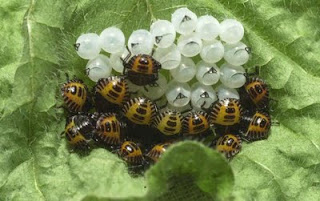Artwork by Beano Gee
Well, here's a Friday conundrum for ya. An artist buddy of mine told me he found a piece he had done awhile back that was based on a poem, only it had been so long he completely forgot what poem it was. So, he came to me, me being the at work poetry guy. I puzzled and searched and guessed and struggled and came up with zilch.
A few days later, his addled brain pan spit back up the obscure bit of info, which wasn't all that obscure once he remembered it. That got me to thinking - I wonder if anybody else would know?
So, poetry mavens, here's the challenge: what poem is this piece of art based on?
To spice the pot (and get your own addled brain pan sizzling), I'll throw in a 15 issue subscription (or an extension to your current subscription) to Lilliput Review for anyone who can guess the poem or the first line (a bit tricky, that part, and something of a hint) AND the poet, or a 6 issue subscription for anyone who simply guesses the poet.
Reply either in the comments section below or directly to me via email (lilliput review AT gmail DOT org).
--------------------------------
Recently, Curtis Dunlap (30 haiku by Curtis - just hit "next") over at Blogging Along Tobacco road did a nice introduction to haiku and senryu that is most definitely worth checking out. Though I don't agree with everything he says - put two haiku poets in a waiting room and they will find something to disagree about except their sly attentiveness to that ceiling fly - give it a look see. It is very worthwhile.
--------------------------------
Anyone who follows this blog with regularity knows how very enthralled I am with the work of John Martone, one of the finest poets writing the short poem today. Here is a recent book by John, microscope field, in all its 96 page glory. It is full of wonder. A tip o' the hat to Scott Watson for pointing me toward it.
--------------------------------
Finally, today's archival selection comes from Lilliput Review #178 and it is a beauty. Enjoy.
Hearing a flute song
The monk's hand pauses
Copying the sutra.
Furrowed brows, you are
Too young for such a look
Yosano Akiko
translated by Dennis Maloney
wafting through trees
a beggar's flute
a nightingale
a beggar's flute
a nightingale
Issa
translated by David G. Lanoue
best,
Don
Send a single haiku for the Wednesday Haiku feature. Here's how.
Go to the LitRock web site for a list of all 120 songs








































.jpg)










